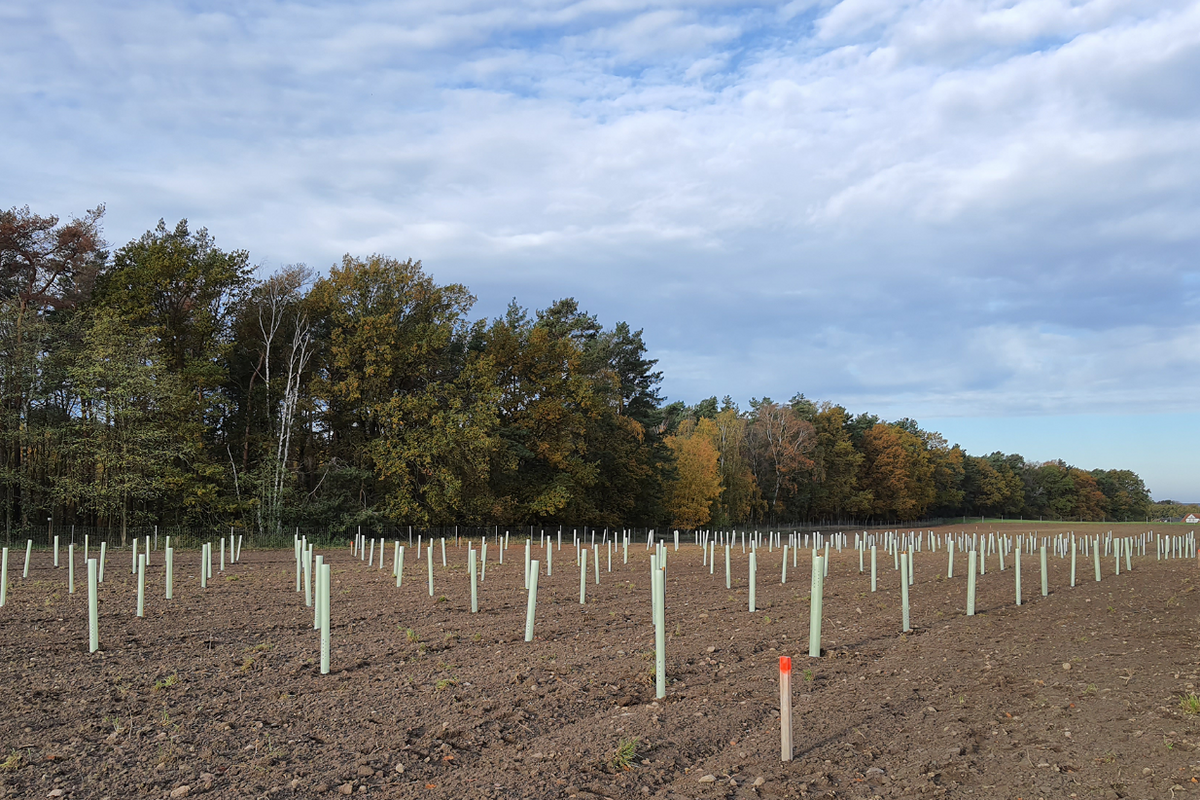Sustainable agriculture for adaptation to climate change
Following a successful interim review, the Federal Ministry of Education and Research is providing a further six million euros for a second funding phase of the WIR! alliance Land-Innovation-Lausitz (LIL). In the alliance, scientists from BTU Cottbus-Senftenberg and the Leibniz Centre for Agricultural Landscape Research (ZALF) have been researching strategies for strengthening Lusatia, which is particularly affected by structural and climate change, through sustainable agriculture since 2019.
The aim of the joint project Land-Innovation-Lausitz is to create new value chains for the bioeconomy in order to establish sustainable cycles and independence from fossil raw materials in agriculture. "In the last three years, more than ten exciting projects have been launched that are already providing initial impetus," says alliance co-speaker Prof. Michael Schmidt of BTU Cottbus-Senftenberg, adding, "In the second funding phase, we are developing groundbreaking concepts that will link scientific and technical innovations developed in the first phase and make them marketable."
Climate change is having a particularly strong impact on the region's predominantly dry and nutrient-poor soils and post-mining landscapes. In order to improve the nutrient content and water storage capacity of the Lusatian soils, the scientists are working together with industrial companies and farms on innovative technologies that can be used to make land use climate-adapted and sustainable in the long term. In this way, solutions are developed that also serve as models for other regions.
Other research topics include new bio-materials such as sustainable agricultural films that can be equipped with "programmable" properties and are completely biodegradable. New raw materials for the paper industry and lightweight construction are based on drought-resistant forage crops such as alfalfa. New agroforestry systems combine agriculture and forestry. The cultivation of new crops, such as truffles, is also a topic of the collaborative project. As a cross-cutting theme, the researchers are focusing on digitization and the use of sensor technology in the second funding phase.
The co-spokesperson of LIL, Prof. Frank Ewert, Scientific Director of the Leibniz Center for Agricultural Landscape Research (ZALF) explains: "The goal is to establish Lusatia as a model region for a sustainable and climate-resilient bioeconomy. To this end, we will involve the regional economy and other stakeholders even more intensively in the second funding phase in order to develop sustainable and competitive Lusatian products together with innovative companies."
About the Land-Innovation-Lausitz initiative
35 project partners from research, business, politics and administration have already been developing innovative technologies and concepts since 2019, with the aim of making Lusatia a model region for adapting agriculture to climate change. The Brandenburg University of Technology Cottbus-Senftenberg and the Leibniz Centre for Agricultural Landscape Research (ZALF) coordinate the project. The alliance is to be further consolidated after funding ends in 2025, on the one hand via networks with companies, municipalities and other partners that are currently being established, and on the other hand via further funding opportunities. In addition, the partners plan to place the cooperation between BTU Cottbus-Senftenberg and ZALF, as well as with other participating non-university research institutions, on a new organizational basis. This is intended to bundle expertise on land innovation in the region and act as a permanent platform for research, development and transfer of results to small and medium-sized enterprises. The declared long-term goal is for Lusatia to be perceived as a supra-regionally visible beacon for land innovation research. The Lusatia Land Innovation Alliance (LIL) is funded under the "Change through Innovation in the Region (WIR!)" program of the German Federal Ministry of Education and Research (BMBF).
BMBF funding line "Change through Innovation in the Region" (WIR!)
Launched in 2017, the federal program "WIR! - Change through Innovation in the Region" is aimed at regions facing the challenges of structural change. In the first round of funding in the WIR! program, the federal government is providing a total of 200 million euros to support broad-based regional alliances in eastern Germany that are jointly developing strategies to identify potential and thus strengthen the innovative power of their region. From more than 100 applications submitted, 20 initiatives were selected to receive up to 15 million euros in funding during the implementation phase through the end of 2025 - including four initiatives from Brandenburg. Almost three years after the start of the implementation phase, the interim evaluation has now taken place to decide on the continuation of the individual projects and the amount of further funding.


